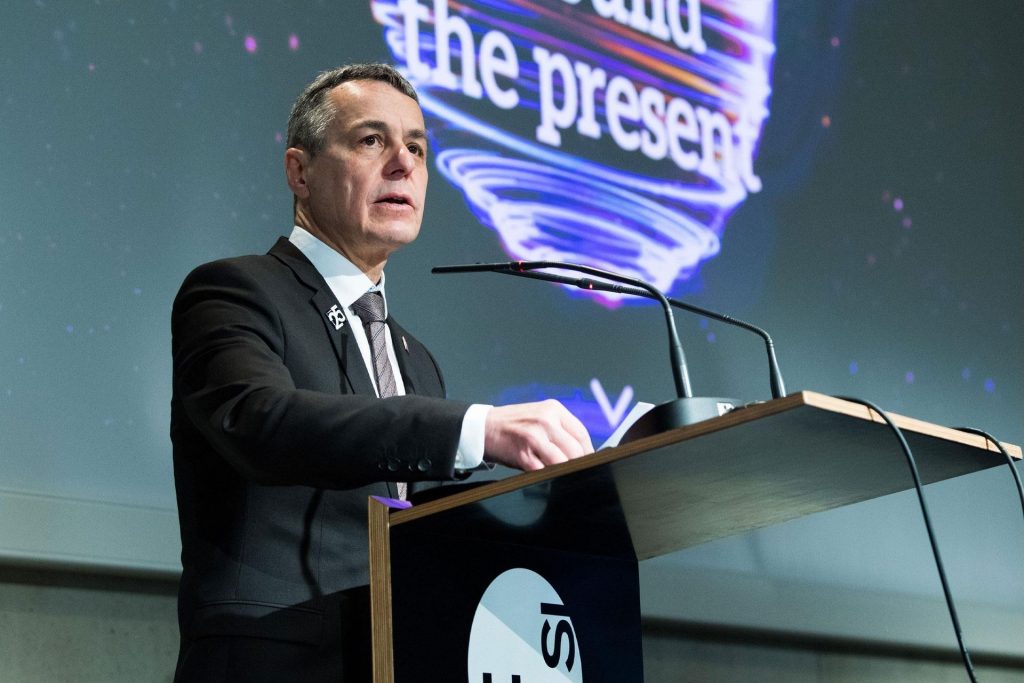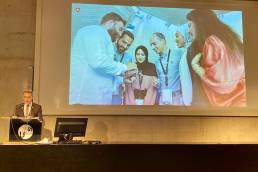“More science in diplomacy, more diplomacy in science.”
On the sidelines of USI’s 25th Dies Academicus, Federal Councillor Ignazio Cassis outlined the strategy that will inform Swiss foreign policy
On the occasion of the 25th Dies Academicus of the Università della Svizzera Italiana, Federal Councillor Ignazio Cassis gave a public speech in the official language of the Republic and Canton of Ticino on Friday, May 7.
Briefly, he said that politics should feed on an approach that should be more based on the scientific, experimental method: on an “evidence based policy”.
Switzerland will have an ad hoc ambassador for… science
“Mr. State Councillor Manuele Bertoli,
Honorable Mayors and Municipalities,
Madam President of the USI Council Monica Duca Widmer,
Mr. Rector Boas Erez,
Esteemed members of the academic body,
Dear students,
Best wishes!
Dear University of Lugano, Happy Birthday! Although you are the birthday girl, you are celebrating your 25th anniversary by offering us precious gifts: the new Faculty of Biomedicine, the new USI-SUPSI East Campus, the House of Sustainability project. You reach the quarter-century mark with great generosity and vitality: I bow before this young lady!
As I prepared for this very special Dies Academicus, my mind went back over the years. I saw myself again in International Geneva, year 1996, as I received from the hands of the Director General of WHO, Dr. Hiroshi Nakajima, the Master’s degree in Public Health. Strong emotions, as certainly are those of the young doctors who choose USI and Ticino to graduate. It makes me proud that Italian Switzerland has become a fundamental part of the science of our country, thanks to a network of institutions scattered between Mendrisio and Airolo.
That Master in Public Health allowed me to combine my passion for medicine with my interest in the community. At the time I obviously had no idea, but I was taking the first step towards the role that I have the honor to hold today. So there is no better occasion to leave behind the nostalgia for my past youth and to announce to you, here in Lugano, with which eyes I want to look to the future.
Switzerland-Liechtenstein pact on scientific innovation
Bern, Zurich and Aargau focus on fiscal innovation
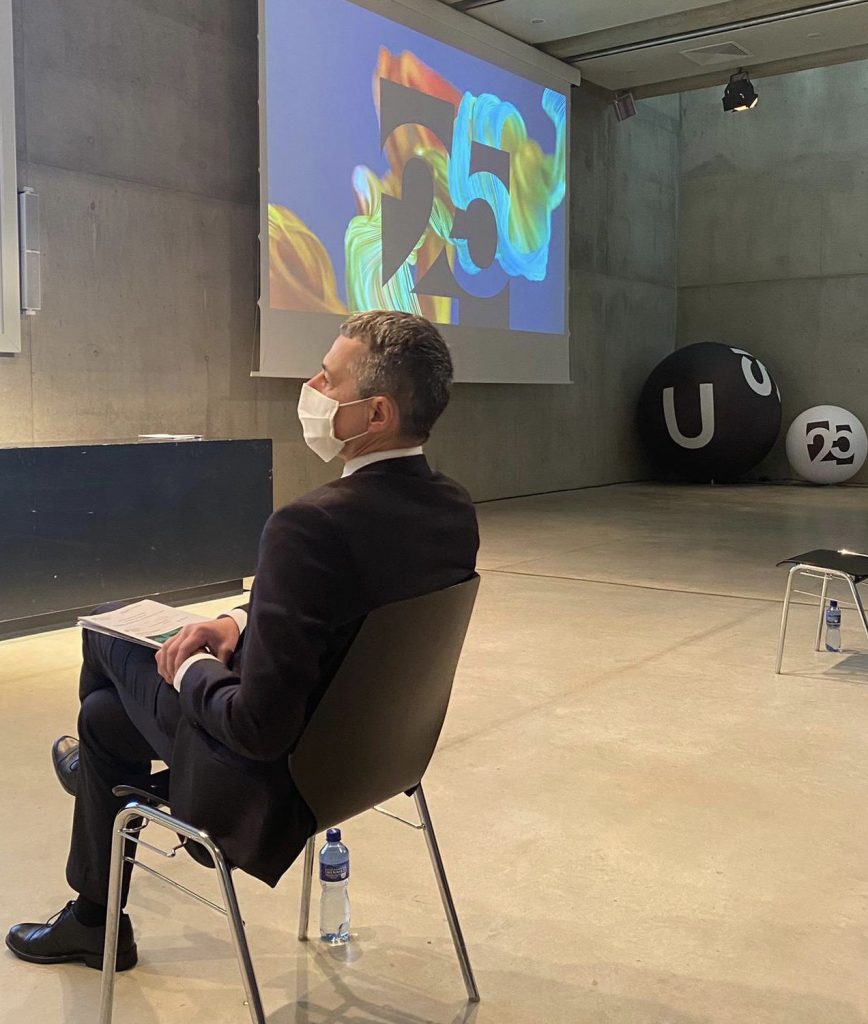
Evidence-based or evidence-based medicine
At the university I learned the scientific method to practice evidence-based medicine or, as it would be more correct to say in good Italian language, evidence-based medicine. This imprinting has never left me and today I am convinced that the same approach should be used more in politics: evidence based policy. The scientific approach is essential to counter the noise caused by a certain populist mainstream, which feeds on fake news and simplifications amplified by digital propaganda. And it is also the only possible weapon to respond to global threats such as the one we are experiencing, the COVID-19 pandemic.
Ladies and gentlemen: we need more science in policy, I am convinced. But we also need more politics in science, to ensure that scientific and technological discoveries serve humans, not the other way around.
“Science-diplomacy,” a beautiful insight of the last decade
In other words, we need more science for diplomacy and diplomacy for science. A concept – that of science-diplomacy – that has been gaining momentum over the last 10 years and is modernizing international diplomacy to bring it up to speed with the scientific and social challenges of this century. I have decided to make him a Swiss diplomacy chief for the 2020 to 2023 term. Switzerland has a first-rate academic network. And an equally strong diplomatic network. Why not strategically combine these two worlds? Why not make greater use of the universal language of science to bring together countries that do not speak to each other except with weapons?
That’s exactly what I’d like to talk about today, taking you with me on a three-stage journey to discover stories about diplomacy and science.
How the Swiss export industry focuses on innovation
More flexibility in promoting Swiss innovation
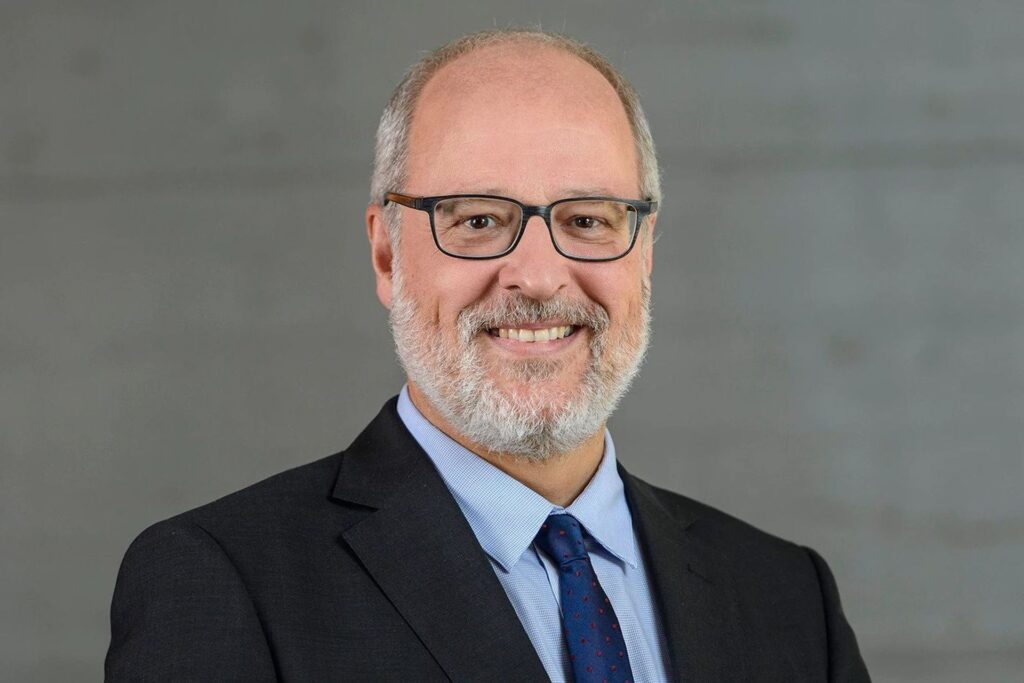
Traveling from the Gulf of Aqaba to Lugano for miraculous corals
We start from the Red Sea. This Swiss sailing ship is called ‘Fleur de Passion’. It set sail a few days ago to study a marine, or rather underwater, paradise, the Gulf of Aqaba. There, overlooked by four states with very different histories and cultures: Israel, Egypt, Saudi Arabia and Jordan. There happens a small-big miracle discovered by the Swiss Federal Institute of Technology in Lausanne. For reasons still unknown, the corals of the Gulf of Aqaba continue to live and shine in their many colors. That is, they resist the increase in water temperature that is so fatal to almost all other coral reefs and many other organisms. These could be the last corals in the world. The sailing ship is therefore in search of scientific evidence to preserve the marine ecosystem. A mission of global importance, but extremely practical for the countries of the region and their economies. Through this scientific expedition we are building ties in the tense and fragmented political context of the Middle East. A scientific dialogue whose positive repercussions in the countries involved will favorably influence their politics.
Switzerland will have an ad hoc ambassador for… science
Federal Council approves Swiss Green Fintech network
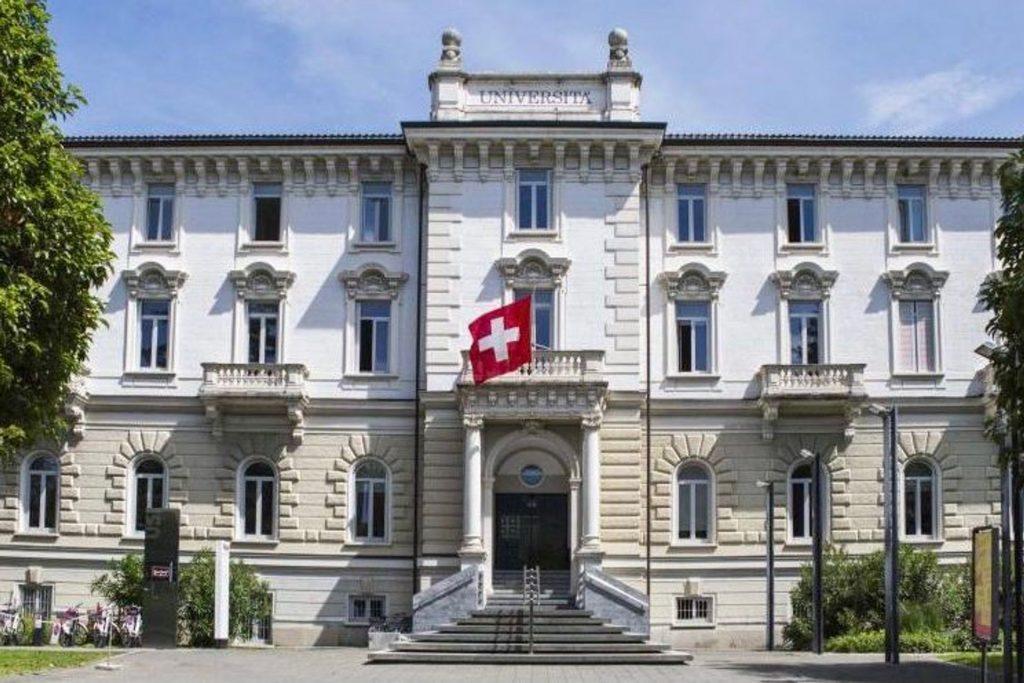
International public law rules that anticipate the future
For the second example, we move to the shores of a lake closer to us. We are in international Geneva. In 2019, the Federal Council together with the Canton and the City of Geneva started the “Geneva Science and Diplomacy Anticipator” foundation, GESDA. The key word is “anticipation”: what impact might discoveries made today in the laboratory have in 5, 10 or 25 years? How can we avoid their consequences? From advanced artificial intelligence to the quantum revolution, from eco-regeneration to human enhancement, from warrior robots to self-driving vehicles. The potential is enormous, the risk too. GESDA makes worlds that speak different languages communicate with each other: the scientific community and governments, technology giants and international organizations. The idea is that the international community can frame these powerful new tools in time with rules of public international law and thus anticipate their impact on peoples. This is a new form of multilateral engagement – a new face we want to give to our diplomacy.
For the third stage, I invite you to come back to Lugano, right here, within the walls of USI. These are the protagonists of the Middle East Mediterranean (MEM) Summer Summit. In some countries of the Middle East, young people represent more than half of the population: it is their ideas, beyond political, religious, ethnic fences, that can change the future of a region as rich as it is tormented. A region of strategic importance for Switzerland as well. The MEM is a concrete example of how universities can become a vector of diplomacy.
🏛️ Sabato abbiamo festeggiato il nostro 2⃣5⃣esimo #DiesAcademicus 🎂. Eccone un riassunto, tra #ospiti speciali, #collegamenti da vari luoghi della #Svizzera italiana, #dottorati #honoriscausa e altro ancora! #USI25 #USIsU #facciamoconoscenza #USIDies25https://t.co/bC1NlrVACe
— USI University (@USI_university) May 10, 2021
A fruitful exchange that is good for all involved
Dear students, researchers,
The concept of science-diplomacy is new, but its substance is not. Let’s go back almost 70 years. We are in 1954 when, on the ashes of the Second World War, one of the most ambitious projects of the 20th century was signed: the one that gave birth to CERN (Conseil européen pour la recherche nucléaire). During the Cold War CERN represented the only meeting point between countries whose only common point was mutual distrust. A fine example, from which we want to draw inspiration!
With these eyes I want to look to the future. Science and diplomacy work together in the interest of the human, of every human being. Science creates the method, generates data, information, knowledge. Politics should transform knowledge into wisdom. This, perhaps, is the most difficult step, which in a democracy is ultimately up to the people. It requires benevolence, courage and responsibility.
Switzerland, like every country, has its strengths and weaknesses. Yet our strength in the world is that we are reliable, credible and capable of creating dialogue between different worlds. We have learned this art over centuries of necessary coexistence between different languages, cultures and religions, and we now practice it successfully beyond our borders. We build bridges, even in the diplomatic sense. We offer our good offices to those who cannot or will not speak to each other. We promote peace and in International Geneva we host the whole world. We try to turn information into wisdom.
Switzerland has the potential to be a key player in science diplomacy. We need good diplomats. But also young and vital universities like this 25-year-old young lady called USI.
Dear USI: we need your young and generous momentum. Diplomacy is ready to give voice – I hope with the necessary wisdom – to your discoveries.
Happy birthday, then. With the wish that your entire community may continue to nurture your “workshops of knowledge” to make our country excel, in the service of the human. Of each and every one of us.
Thank you!”
Ignazio Cassis, Federal Councillor
